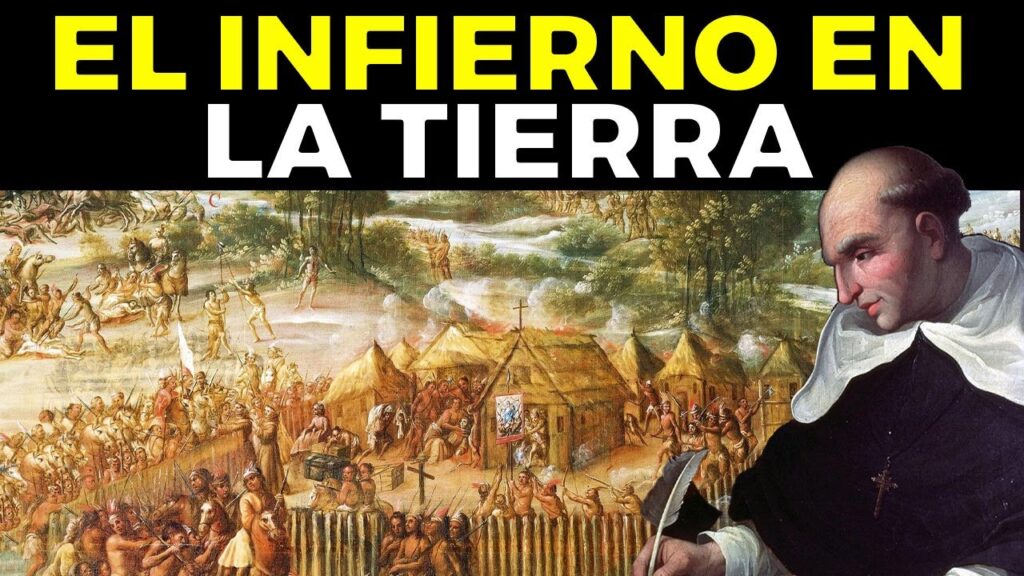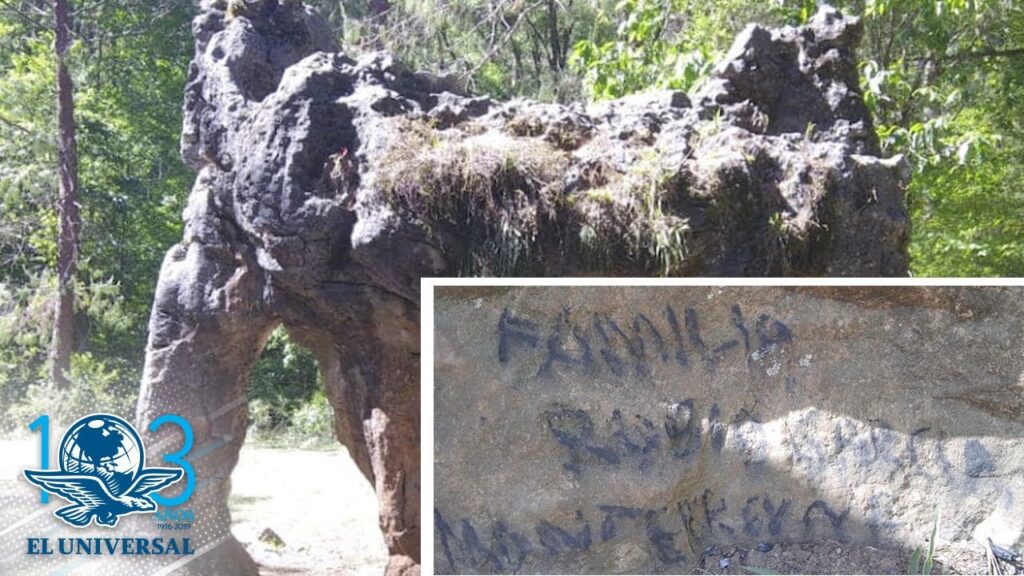Discovering the Legacy of Fray Bartolomé de las Casas in Mexico
When roaming through the vibrant history of Mexico, one cannot overlook the enduring legacy of Fray Bartolomé de las Casas, a figure whose life and work left an indelible mark on the nation’s past. Originally hailing from Spain, this Dominican friar became one of the earliest advocates for the rights of indigenous people during the colonial era. His efforts to protect the native populations contrast sharply with the cruelties often inflicted during the period of Spanish conquest, making his story a beacon of hope in an otherwise turbulent historical chapter.
De las Casas is perhaps best known for his relentless campaign to halt the encomienda system, a labor program that effectively enslaved the indigenous peoples of the New World. His written works, such as “A Short Account of the Destruction of the Indies,” provide a harrowing account of the atrocities committed, offering a rare perspective that challenged the prevailing attitudes of his contemporaries. By intricately documenting the abuses and advocating before the Spanish court, Bartolomé de las Casas fought to implement reforms that would enhance the quality of life for the native communities.
Despite facing considerable opposition, Fray Bartolomé’s unwavering dedication led to incremental changes and the promulgation of the New Laws of 1542, which aimed to grant certain protections to the indigenous people. These laws, although not flawlessly executed, represented a significant stride towards justice. Today, historians and human rights scholars regard these legislative efforts as some of the first formal acknowledgments of human rights in European colonial history. Indeed, the legacy of these reforms is a vital part of Mexico’s rich tapestry and is a subject of ongoing study and veneration.
Modern-day travelers in Mexico can trace the steps of Fray Bartolomé de las Casas by visiting sites significant to his mission and advocacy. These historical landmarks offer profound insights into the challenging contexts he navigated and the transformative impact he had on the treatment of the indigenous inhabitants. Though centuries have passed, the voice of Fray Bartolomé continues to resonate, reminding us of the enduring struggle for justice and the power of an individual’s conviction to inspire meaningful change.
The Dominican Who Spoke Out Against Conquest Cruelty: Fray Bartolomé de las Casas
At the heart of the Spanish conquest of the Americas, there emerged voices of dissent and advocacy for the native peoples. Among the most vocal was Fray Bartolomé de las Casas, a Dominican friar who became an impassioned defender of the Indigenous populations. His journey from being a colonist himself to taking the role of protector provides a compelling narrative of moral awakening. Initially benefitting from the encomienda system, which enslaved the natives to work for Spanish landholders, de las Casas underwent a dramatic transformation after witnessing the brutality inflicted upon the Indigenous communities.
De las Casas is best known for his extensive writings, which boldly criticized the Spanish methods of colonization and called for the abolition of indigenous slavery. His “A Short Account of the Destruction of the Indies” is a harrowing chronicle of the sufferings endured by the native populations, and it played a significant role in shaping European perceptions of the New World. His advocacy extended beyond mere words, as he lobbied for the enactment of the New Laws in 1542, which aimed to put an end to the worst abuses against the natives, though enforcement was lax and opposition was strong.
Fray Bartolomé de las Casas’ legacy is a testament to the power of ethical conviction in the face of immense historical forces. His efforts laid the groundwork for future debates on universal human rights and the treatment of colonized peoples. As the struggle for ethical imperialism continued, his unwavering commitment to justice for the Indigenous populations of the Americas became a beacon for those who followed in his footsteps, fighting for human rights and equality. De las Casas’ life reminds us that in every era, there are those who will stand against tyranny and advocate for the voiceless.
Fray Bartolomé de las Casas: Unveiling the History of a Human Rights Pioneer
Fray Bartolomé de las Casas is a figure etched deeply into the annals of Mexican history, yet his legacy extends far beyond the borders of any one country. Born in 1484 in Seville, Spain, his early life as a settler and priest in the New World laid the groundwork for what would become a lifelong dedication to the rights of indigenous peoples. De las Casas’ transformation from a landowner and encomendero, who at first did not question the subjugation of the natives, to their vehement defender is a profound narrative of moral and spiritual awakening.
His most significant shift occurred after witnessing the atrocities committed against the native population. The turning point came in 1514 when he renounced his own encomienda and began to advocate for the abolishment of the cruel encomienda system, which effectively enslaved the indigenous people. In his writings, particularly in “A Short Account of the Destruction of the Indies”, de las Casas provided a scathing chronicle of the abuses committed by Spanish colonists. These writings were instrumental in spreading awareness across Europe and directly influenced the passage of the New Laws in 1542, aimed at reforming the treatment of natives.
Despite the controversy and opposition he faced, de las Casas persevered, serving as a Dominican friar and later as the Bishop of Chiapas. In these roles, he continued his vigorous campaign for justice, utilizing his sermons, treatises, and his influence within the Spanish court. His advocacy extended to proposing alternatives to the existing system, such as the importation of willing workers from Africa, though he later regreted this suggestion upon recognizing that it too led to horrific abuse and the entrenchment of the Atlantic slave trade.
Exploring the Impact of Fray Bartolomé de las Casas on Mexican Culture
Fray Bartolomé de las Casas, a 16th-century Spanish historian and Dominican missionary, holds a pivotal place in the history of Mexico and its cultural development. Known as the “Apostle of the Indians,” de las Casas dedicated his life to advocating for the rights and welfare of the indigenous populations in the New World. His relentless efforts and writings were foundational in shaping the ethical perspective towards indigenous cultures within the Spanish Empire. While controversial, his impact on Mexican culture is especially significant in terms of human rights and the promotion of cultural understanding.
One of the lasting impacts de las Casas had on Mexican culture was his fervent opposition to the encomienda system perpetrated by the Spanish conquistadors. This system, essentially a form of enslavement, forced the indigenous people into grueling labor for the colonists. De las Casas’s vehement protests and his book, “A Short Account of the Destruction of the Indies,” were among the first and most eloquent defenses of indigenous rights. His work laid the groundwork for the subsequent laws passed to protect indigenous populations, making him an early figure in the fight for human rights in Latin America.
De las Casas’s influence also extended into the cultural and religious spheres of Mexico. His push for the peaceful conversion of native peoples, as opposed to the often violent methods used by other colonizers, contributed to a more syncretic form of Christianity, blending Catholic traditions with indigenous beliefs. This syncretism remains a hallmark of Mexican spirituality, which can be seen in rituals, celebrations, and even daily life, reflecting a unique fusion that traces back to the compassionate approach advocated by de las Casas.
In the realm of literature and historiography, Fray Bartolomé de las Casas is recognized as an early and significant historian of the New World. His detailed accounts of pre-Columbian civilizations have provided valuable insights into indigenous cultures and the impacts of colonization. His advocacy and writings offer a nuanced view of colonial history that highlights the complexity of cultural interactions and the resilience of indigenous peoples. This perspective has inspired generations of Mexican scholars and continues to influence contemporary discussions surrounding identity and history.
The Trail of Fray Bartolomé de las Casas: Tracing His Steps in Modern Mexico
Embarking on the trail of Fray Bartolomé de las Casas offers a unique juxtaposition of history and modernity as you follow the footsteps of one of the most important advocates for indigenous rights during the Spanish conquest. De las Casas, a 16th-century Dominican friar, chronicled the plight of the indigenous people and worked tirelessly to promote their welfare. His path through modern Mexico provides a route to understand the country’s rich history and the foundations of its cultural heritage.
Fray Bartolomé de las Casas first arrived in the New World in Hispaniola and later travelled to Cuba, before making significant stops in Mexico, primarily in the areas that are today known as Chiapas and Mexico City. His advocacy began when he was granted a land and encomienda – a Spanish labor system that he soon realized was akin to slavery. Revolted by the treatment of the local population, he relinquished his rights to the encomienda, beginning a lifelong crusade for justice.
In Chiapas, the town of San Cristóbal de las Casas, now named in his honor, stands as a testament to his lasting impact. It’s here where visitors can walk down cobblestone streets, amidst colonial architecture, and imagine the fervor with which De las Casas opposed the local authorities to protect the indigenous people. Cultural centers and museums in this region dig deep into his life’s work and the broader context of Spanish colonialism in the Americas.
Moving towards the capital, Mexico City’s historical district provides a comprehensive backdrop where De las Casas fought many of his battles. The Metropolitan Cathedral and the National Palace were central locations in his fight for human rights. While these grand structures today stand as symbols of Mexican heritage and grandeur, they also serve as silent witnesses to De las Casas’ relentless advocacy. Visitors can explore these landmarks, understanding the contrast between past injustices and the strides towards recognition and equality that have been made since.
Further linking the past to the present, retracing the steps of De las Casas also illuminates the ongoing efforts for indigenous rights and recognition in Mexico. His writings, thoughts, and actions are echoed in modern movements and organizations that continue to strive for societal equity. Following the trail of Fray Bartolomé de las Casas not only provides a window into a crucial historical narrative but connects travelers to the enduring spirit of social justice that molds Mexico today.



